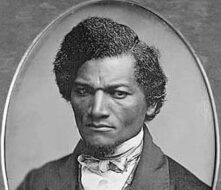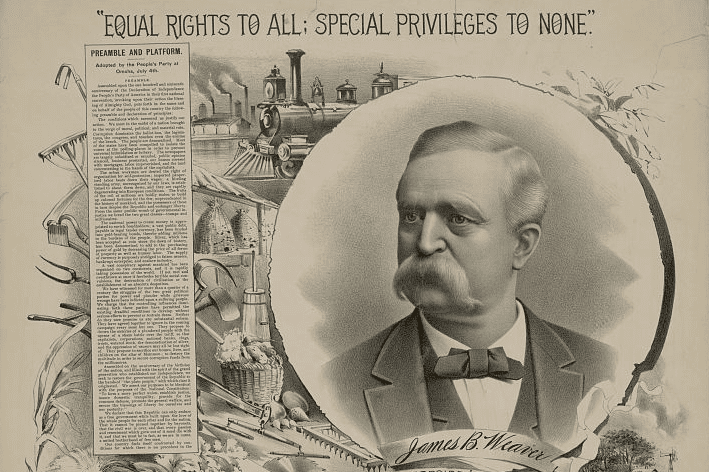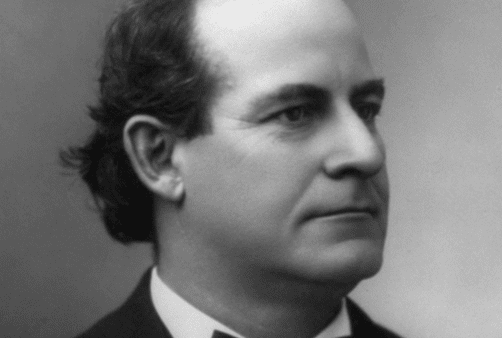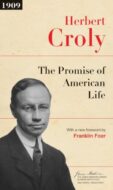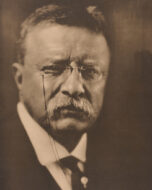
No related resources
Introduction
As a child and young adult, Mary Baker Eddy (1821–1910) experienced repeated poor health bordering on invalidism. Although she tried many different kinds of remedies ranging from traditional medicine to alternative treatments such as the water cure, she claimed never to have experienced true relief until she became convinced of the sole efficacy of faith healing in the mid-1860s. Eddy devoted several years to developing her new understanding of what she referred to as the “primitive Christian” understanding of the connection between mind and body. By 1875, she was ready to share her findings with others, publishing Science and Health, a veritable handbook for those who wished to practice the principles of what she was already calling “Christian Science” for themselves. When mainstream Protestant denominations dismissed her system and specifically, her Biblical interpretation as heterodox, she established the Church of Christ, Scientist in 1879.
Ironically, as the essay below makes clear, Eddy ultimately came to believe in a sort of neo-Platonism, teaching her followers that not only was the material world (including their bodies and any physical ailments) corrupt, but that it was ultimately an illusion that impeded their ability to experience the true reality of the spirit. Indeed, Eddy refers to a too-serious regard of the material world as a type of idolatry; logically, then, she viewed sickness as the manifestation of sin. She therefore urged her followers to reject modern, secular medical treatments and instead, to focus their energies on purifying their souls. The rejection of modern medical wisdom raised public health concerns; legislatures around the country responded by passing bills meant to limit the practice of Christian Science healers. In this excerpt, Eddy rejects such laws not on the grounds that they violated the right to the free exercise of religion, a position taken by later Christian Scientists in opposing vaccination laws, for example, but rather on the more sweeping charge that they are “human rights” violations.
Source: Mary Baker Eddy, “The People’s God: Its Effect on Health and Christianity,” The Christian Science Journal (June 1883).
“One Lord, one faith, one baptism.” Ephesians 4:5
. . . The improved theory and practice of religion and of medicine are mainly due to the people’s improved views of the Supreme Being. As the finite and personal sense of Deity, based on material conceptions of spiritual being, yield their grosser elements, we shall learn what God is, and what God does for man. . . .
. . . Proportionately as the people’s belief of God, in every age, has dematerialized and impersonalized has their Deity become good; no longer a personal tyrant or a molten image, but the divine and spiritual model of eternal Life, Truth, and Love,—Life without beginning or ending, Truth without a lapse or error, and Love universal, infinite and eternal. This more perfect Deity, held constantly before the people’s mind, must have a benign and elevating influence upon the character of nations as well as individuals, and will lift man ultimately to the understanding that our ideals form our characters, and “as a man thinketh so is he.” The crudest ideals of speculative theology have made monsters of men; and the ideals of Materia medica[1] have made helpless invalids and cripples. The eternal roasting amidst noxious vapours,—the election of the minority to be saved and the majority to be eternally punished; the wrath of God to be appeased by the sacrifice and torture of his favorite Son; are some of the false beliefs that have produced sin, sickness and death; and then would say, these are natural, and that Christianity and Christ-healing are preter-natural; yea, that make a mysterious God and a natural devil. It requires more than another flood to efface the dire effects of such false systems.
Let us rejoice that the bow of Omnipotence already spans the moral heavens with light, and the more spiritual idea of Good and Truth meets the old material thought like a promise upon the cloud, while it inscribes on the thoughts of men at this period a more metaphysical religion in Christian Science. . . . Idolatry sprang from the belief that God is a form more than an infinite and divine Mind; sin, sickness and death originated in the belief that spirit materialized into a body, infinity became finity, or man, and the Eternal entered the temporal. . . .
The glorious godhead is Life, Truth and Love, and these three terms for one divine Principle, are the three in one that can be understood, and that find no reflection in sinning, sick and dying mortals. . . . Systems of religion and of medicine grown out of such false ideals of the Supreme Being cannot heal the sick and cast out devils, error. Eschewing a materialistic and idolatrous theory and practice of medicine and religion, the apostle devoutly recommends the more spiritual Christianity—One Lord, one faith, one baptism. The prophets and apostles whose lives are the embodiment of a living faith, have not “taken away our Lord, that we know not where they have laid him;” they have resurrected a deathless life of love; and into the cold materialisms of dogma and doctrine we look in vain for their more spiritual ideal, the risen Christ, whose materia medica and theology were one. . . .
Believing that man is the victim of his Maker, we naturally fear God more than we love him; whereas “perfect love casteth out fear;” but when we learn God aright we love him, because He is found altogether lovely. Thus it is that a more spiritual and true ideal of Deity improves the race physically and spiritually. God is no longer a mystery to the Christian Scientist, but a divine Principle understood in part, because the grand realities of Life and Truth are found destroying sin, sickness and death, and it should no longer be deemed treason to understand God, when the Scriptures enjoin us, “To acquaint now thyself with God and be at peace;” we should understand something of that great good for which we are to leave all else. . . .
To remove those objects of sense called sickness and disease, we must appeal to mind to improve its subjects and objects of thought, and give to the body those better delineations. Scientific discovery and the inspiration of Truth have taught me that the health and character of man become more or less perfect as his mind-models are more or less spiritual. Because God is spirit our thoughts must spiritualize to approach Him, and our methods grow more spiritual to accord with our thoughts. Religion and medicine must dematerialize to present the right idea of truth, then will this idea cast out error and heal the sick. If changeableness that repenteth itself,—partiality that elects some to be saved and others to be lost, or that answers the prayer of one and not of another,—if incompetency that cannot heal the sick, or lack of love that will not,—if unmercifulness, that for the sins of a few tried years punishes man eternally, are our conceptions of Deity, we shall bring out these qualities of character in our own lives and extend their influence to others. . . .
We possess our own body and make it harmonious or discordant according to the images that thought reflects upon it. The emancipation of our bodies from sickness will follow the mind’s freedom from sin. . . . The rights of man were vindicated but in a single instance when African slavery was abolished on this continent, yet that hour was a prophesy of the full liberty of the sons of God as found in Christian Science. The defenders of the rights of the colored man were scarcely done with their battles before a new abolitionist struck the keynote of higher claims, in which it was found that the feeblest mind, enlightened and spiritualized, can free its body from disease as well as sin, and this victory is achieved not with bayonet and blood, not by inhuman warfare, but divine peace.
Above the platform of human rights let us build another staging for diviner claims, even the supremacy of soul over sense, wherein man co-operates with and is made subject to his Maker. The lame, the blind, the sick, the sensual, are slaves, and their fetters are gnawing away life and hope, and their chains are clasped by the false teachings, false theories, false fears, that enforce new forms of oppression, and are the modern Pharaohs that hold the children of Israel still in bondage. Mortals, alias, mortal minds, make the laws that govern their bodies, as directly as men pass legislative acts and enact penal codes; while the body, obedient to the legislation of mind but ignorant of the law of belief, calls its own enactments “laws of matter.” The legislators who greatly responsible for all the woes of mankind are those leaders of public thought, who are mistaken in their methods of humanity.
The learned quacks of this period “bind heavy burdens that they themselves will not touch with one of their fingers.” Scientific guessing conspires unwittingly against the liberty and lives of men. Should we but hearken to the higher law of God, we should think for one moment of these divine statutes of God; “let them have dominion over all the earth.” “And if they drink any deadly thing it shall not hurt them. They shall lay hands on the sick, and they shall recover.” The only law of sickness or death is a law of mortal belief, an infringement on the merciful and just government of God. When this great fact is understood, the spurious imaginary laws of matter,—when matter is not a lawgiver,—will be disputed and trampled under the feet of Truth. Deal then with this fabulous law, as with an inhuman state law; repeal it in mind and acknowledge only God in all thy ways, “Who forgiveth all thine iniquities, and healeth all thy diseases.” Few there be who know what a power mind is to heal when imbued with the spiritual truth that lifts man above the demands of matter. . . .
- 1. a traditional term used for the knowledge of the healing properties of a medicine
The Civil Rights Cases
October 15, 1883
Conversation-based seminars for collegial PD, one-day and multi-day seminars, graduate credit seminars (MA degree), online and in-person.


















